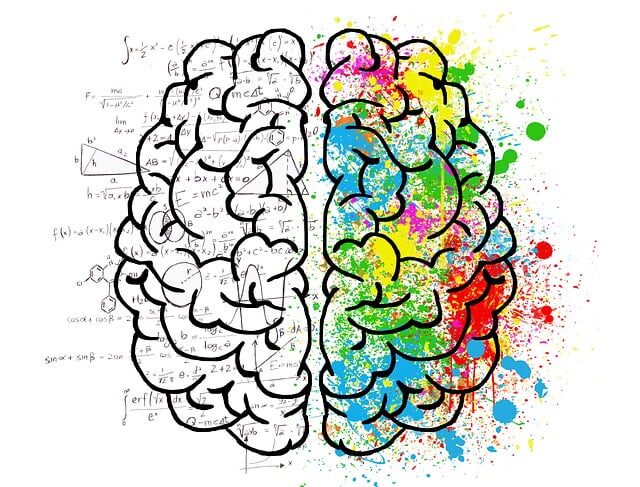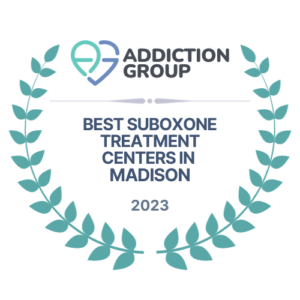Meditation is a technique that aims to develop mental focus and induce a state of tranquility and relaxation by concentrating on the present moment. Mindfulness oriented recovery enhancement has been used for centuries to improve mental and physical health, and recent research suggests that it may be a valuable tool for individuals in addiction recovery to improve adverse consequences associated with substance use disorders.
The role of meditation and mindfulness techniques in a mindfulness practice in addiction recovery is multifaceted. It can help individuals reduce stress and anxiety in everyday life, regulate their emotions, and better understand their thoughts, feelings, and behavior patterns. Additionally, it can complement other addiction treatments such as therapy and medication to improve recovery outcomes.
In this article, we will explore the benefits of meditation for addiction recovery and provide tips for starting a meditation practice.


Understanding Addiction and Addiction Recovery
What is Addiction and How Does It Affect the Brain?
Addiction is a complex and often chronic disorder that affects the brain and behavior of those who suffer from it. Addiction is a condition that can manifest as addictive behaviors such as an irresistible urge to consume drugs, despite being aware of the harmful effects that such drug use can have on one’s health and well-being.
Drug use alters the brain’s normal function, leading to changes in the brain’s reward system, memory, learning, and other cognitive processes. When a person uses drugs, it activates the brain’s reward centers and releases neurotransmitters such as dopamine, which reinforces drug use and motivates the individual to continue using drugs. Over time, the brain adapts to the presence of drugs, and the individual requires higher doses of the drug to achieve the same effect, which is known as tolerance. Drug tolerance is a defining characteristic of addiction that can ultimately result in drug dependence.
Apart from tolerance, addiction also gives rise to both physical and psychological dependence on drugs. Physical dependence occurs when the body adapts to the presence of drugs and experiences withdrawal symptoms when the drug is discontinued. Many physician prescribed medications such as benzodiazepines (xanax) also cause physical dependence, so physical dependence is not specific to illicit drugs. Withdrawal symptoms can be painful and can include nausea, vomiting, sweating, tremors, and seizures. Psychological dependence, on the other hand, is characterized by intense cravings and an emotional attachment to the drug as other previous things in life that would cause dopamine release such as eating a steak no longer cause happiness so individuals will frequently relapse to using the drug as the only thing that will make them happy, making which can make it difficult for individuals to quit using drugs.
Stress associated with drug use leads to chronic high levels of cortisol (sympathetic overdrive) decreasing blood flow to the prefrontal cortex of the brain making one more impulsive and adds blood to the posterior (hindbrain) brain associated with instant reflexive behavior making us more distrustful, less empathetic, and unable to make thoughtful decisions. Stress makes us never able to rest or reset, decreases the immune system, can cause changes from glycogen to glucose (sugar) leading to an insulin spike that causes hunger, moodiness, and fatigue. Stress can also affect the adrenal glands leading to decreased testosterone and estrogen causing weight gain, fatigue, and decreased sex drive. Meditation helps relieve stress by developing new neurons in the prefrontal cortex, calming the mind, and leading to a less reactive, more peaceful state.
The Process of Addiction Recovery and Its Challenges
Addiction recovery is a journey that requires commitment, patience, and support. Recovery typically involves a combination of therapies and treatments, such as behavioral therapy, medication-assisted treatment, and support groups. The goal of addiction recovery is not just to overcome addiction but also to build a healthy and fulfilling life.
The process of addiction recovery is not without its challenges. One of the biggest challenges is the risk of relapse. Relapse refers to the resumption of drug use by an individual following a period of abstaining from it. Relapse can be triggered by various factors such as stress, social pressure, or exposure to drug-related cues. Individuals in recovery from substance misuse also often face stigma and discrimination, which can make it difficult for them to rebuild their lives.
Despite the challenges of addiction recovery, it is important to seek professional help and support to navigate the process of addiction recovery and build a healthy and fulfilling life.
Benefits of Meditation for Addiction Recovery
Several scientific studies have found that mindfulness meditation practices can be an effective tool for individuals in addiction recovery. Research has shown that using mindfulness training and meditation can be an effective approach for reducing substance use among individuals diagnosed with opioid use disorder. Mindfulness meditation was also associated with improved treatment outcomes for individuals in residential substance abuse treatment. Mindfulness based cognitive therapy and mindfulness based relapse prevention in relation to psychiatric disorders, prescription opioid misuse, drug addiction, and chronic drug use can affect clinical outcomes in chronic pain patients and in randomized controlled trials be used to treat addiction.
Peace comes from the inside. Calm the chatter in your head. Be less reactive to the noise and be less impulsive. Your outer world will shift as you shift your inner world. Our outer world is a reflection of our inner one. As we find peace and change ourselves, that change will be reflected in the world around us. Chaos becomes order, drama resolves. Old friends associated with drug use disappear, new friends that have a positive influence on you appear.
Meditation has also been shown to improve cognitive function, reduce stress and anxiety, and improve overall well-being. These benefits can be particularly helpful for individuals in addiction recovery, as they can help reduce the risk of relapse and improve recovery outcomes.
1. Stress Reduction
Stress and anxiety are common triggers for drug use involved in stress reactivity and can make it difficult for individuals in addiction recovery to stay on track with their recovery goals and potentially increase addiction relapse. Studies have demonstrated that meditation and behavioral therapies are useful techniques for decreasing stress and anxiety, which can help individuals in addiction recovery manage these triggers and emotions. Stress reduction through neural mechanisms can help nicotine dependent smokers with smoking cessation. Stress primed alcohol cues and stress exposure can contribute to drug abuse. Brief mindfulness training and mindful breathing acts to increase natural reward stimuli of pleasant daily life activities. Meditation acts in parallel to substance use disorder treatment with positive reinforcement as therapeutic mechanisms.
Meditation can activate the body’s natural relaxation response, which can reduce stress and anxiety levels and increase natural reward cues. The relaxation response helps to reduce heart rate, blood pressure, and muscle tension, and it can also improve immune function and lower levels of stress hormones such as cortisol. By regularly practicing meditation, individuals in addiction recovery can develop the skills to better manage stress and anxiety and reduce the risk of relapse.
2. Emotional Regulation
Emotional regulation is a critical component of addiction recovery. Many individuals in addiction recovery struggle with emotional dysregulation, which is the inability to manage and regulate intense emotions. Meditation has been shown to be an effective tool for improving emotional control and balance. Positive emotions through mindfulness meditation or mindfulness based interventions are effective treatments as a relapse prevention strategy.
Through meditation, individuals can develop the ability to observe their thoughts, addictive behaviors, and feelings without becoming entangled in them. By using mindfulness exercises cultivating greater awareness of their thoughts and emotions, individuals can start recognizing patterns of thinking and behavior that may contribute to addiction. Regular meditation practice can also lead to changes in the brain that promote emotional regulation, such as changes in theincreased activity in the prefrontal cortex and reduced activity in the amygdala.
3. Self-awareness
Self-awareness is an essential component of addiction recovery. Meditation can help individuals in addiction recovery to develop greater self-awareness by becoming more attuned to their thoughts, feelings, and behavior patterns.
Meditation helps individuals to observe their thoughts and feelings without getting caught up in them. By becoming more aware of their thoughts and feelings, individuals can begin to identify patterns of thinking and behavior that may contribute to addiction. Through regular meditation practice, individuals can develop greater self-awareness and learn to break free from negative thought patterns and behavior habits that may have contributed to their addiction.
Different Types of Meditation Techniques
There are several types of meditation techniques that individuals in addiction recovery can use to aid their recovery journey. Some of the most popular techniques include:
1. Mindfulness Meditation
Mindfulness meditation entails directing attention to the present moment and perceiving thoughts and emotions without making judgments about them. The practice is often done sitting or lying down, and individuals are encouraged to focus on their breath or a specific object. Through directing attention to the present moment, individuals can gain the capacity to regulate their emotions and decrease stress and anxiety.
Mindfulness meditation has been proven to be effective in diminishing substance use disorders even among those in addiction recovery. Moreover, it can assist individuals in cultivating heightened self-awareness and practicing mindfulness, which can be an important aspect of addiction recovery.
2. Transcendental Meditation
The practice of transcendental meditation involves the utilization of a specific sound or mantra to assist individuals in attaining a state of profound relaxation.. The practice is often done sitting or lying down, and individuals are encouraged to repeat a specific sound or phrase to help quiet the mind.
Transcendental meditation has been shown to be effective in reducing stress and anxiety, as well as improving cognitive function and overall well-being. It can also be an effective tool for individuals in addiction recovery, as it can help reduce substance use and improve treatment outcomes.
3. Yoga
Yoga incorporates a blend of physical postures, breathing techniques, and meditation practices that aim to enhance physical and mental health. The physical practice of yoga can help individuals reduce stress and anxiety, while the meditation and breathing exercises can help individuals develop greater self-awareness and regulate their emotions more effectively.
Yoga has been shown to be an effective tool for individuals in addiction recovery, as it can help reduce substance use, improve treatment outcomes, and promote overall well-being. It can also help individuals build a healthy and fulfilling life in recovery.
Each type of meditation technique offers unique benefits for individuals in addiction recovery. It is important for individuals to find a technique that resonates with them and to practice regularly to reap the full benefits. With regular practice, meditation can be a powerful tool for individuals in addiction recovery to manage stress, regulate emotions, and build a healthy life.


Tips for Starting a Meditation Practice
Meditation can be a powerful tool for individuals in addiction recovery, but starting a meditation practice can be challenging. Here are some tips to help individuals in addiction treatment get started with a meditation practice:
1. Creating a conducive environment for meditation
Creating a conducive environment for meditation is essential to the practice. Find a quiet and comfortable space where you can meditate without distractions. It can also be helpful to set the mood with calming music or lighting.
2. Finding a suitable time and duration for meditation
Finding a suitable time and duration for meditation is important to establish a consistent mindfulness practice. Initiate with a brief session, like five or ten minutes, and then progressively extend the duration as you become more acclimated to the activity. It is also important to find a time when you can meditate consistently, whether it is in the morning, afternoon, or evening.
3. Overcoming common challenges in starting a meditation practice
Starting a meditation practice can be challenging, especially for individuals who are new to the practice. Some common challenges include difficulty sitting still, a wandering mind, and discomfort. To overcome these challenges, it can be helpful to start with guided meditations or group meditation sessions. These can provide structure and support to the practice.
Another common challenge is staying motivated to continue the practice. It can be helpful to set achievable goals and to remind yourself of the benefits of meditation. Regular practice can help individuals in addiction recovery to manage stress, regulate emotions, and build a healthy and fulfilling life in recovery.
Starting a meditation practice takes time and dedication. By creating a conducive environment, finding a suitable time and duration, and overcoming common challenges, individuals can establish a consistent mindfulness practice, and reap the benefits of meditation for addiction recovery.
Mindful Eating as a Tool for Addiction Recovery
The practice of mindful eating is centered on paying attention to the physical sensations and emotional experience of eating. It can serve as a valuable technique for individuals in addiction recovery to cultivate a more nourishing connection with food and their bodies. Here are some ways that mindful eating can complement a meditation practice in addiction recovery:
The Role of Mindful Eating in Addiction Recovery
In addiction recovery, mindful eating can be an instrumental component for individuals to establish a more positive connection with their bodies and food. For individuals in addiction recovery, food can become a substitute for drugs or alcohol, leading to unhealthy eating habits and weight gain.
Mindful eating can help individuals become more aware of their hunger and fullness cues, leading to a more balanced and nourishing relationship with food. Practicing mindful eating can also complement a meditation practice by increasing awareness of the present moment and improving emotional regulation.
Strategies for Practicing Mindful Eating
Mindful eating is accomplished by focusing on the eating experience, which entails paying attention to the flavor, consistency, and feeling of food. Here are some strategies for practicing mindful eating:
- Eat without distractions: Avoid watching TV, using your phone, or reading while eating. Focus on the experience of eating and enjoy each bite.
- Savor each bite: Take time to chew each bite and savor the taste and texture of the food. This can help increase satisfaction and reduce the urge to overeat.
- Tune into your body: Stay attuned to your body by monitoring your hunger and fullness signals during the meal. Eat until you are comfortably full, but not overly stuffed.
- Practice gratitude: Take a moment before or after the meal to express gratitude for the food and the nourishment it provides.
For individuals in addiction recovery, mindful eating can be a potent resource to foster a more positive relationship with their bodies and food. By complementing a meditation practice, individuals can increase their awareness of the present moment and improve emotional regulation.
Meditation as a Complementary Therapy
Meditation can be a powerful tool for individuals in addiction recovery, and it can also be used as a complementary therapy to other addiction treatments. Here are some ways that meditation can complement other addiction treatments:
Benefits of Meditation With Other Treatments
Using meditation in combination with other addiction treatments such as therapy and medication can offer several benefits. For individuals in addiction recovery, medication can be used to manage withdrawal symptoms and reduce cravings. Therapy can assist individuals in identifying and confronting the root causes that may have played a role in their substance use disorders.
Meditation can complement these treatments by providing additional support for managing stress and regulating emotions. It can also help individuals develop greater self-awareness and other mindfulness skills, which can be helpful for addressing the root causes of substance misuse and addiction.
How It Can Improve Recovery Outcomes
Using meditation as cognitive behavioral therapy as a complementary therapy can improve recovery outcomes by providing additional tools for managing stress, regulating emotions, and developing greater self-awareness. By integrating meditation, cognitive behavioral therapy, and motivational enhancement therapy into an addiction treatment plan, individuals can develop a more holistic and comprehensive approach to recovery.
Meditation can also provide a sense of empowerment and self-efficacy for individuals in addiction recovery. By learning to manage their thoughts and emotions more effectively, individuals can develop greater confidence in their ability to overcome addiction.
Incorporating meditation practice mindfulness skills as a complementary therapy can be a valuable asset for individuals in addiction recovery, enhancing their recovery outcomes and promoting a more comprehensive and holistic approach to overcoming addiction when included as part of an addiction treatment plan.


Conclusion
Meditation can be a transformative practice for individuals in addiction recovery. Integrating meditation into their journey can support their recovery, offering benefits such as mindfulness based stress reduction, emotional regulation, and greater self-awareness.
Through such mindfulness practices of meditation, transcendental meditation, mindfulness oriented recovery enhancement, or yoga, individuals can manage their thoughts and emotions more effectively, leading to a healthier and more fulfilling life in recovery. If you’re in addiction recovery, consider exploring the practice of meditation as a valuable tool for supporting your journey towards healing and growth.
Interested to learn more? Read more related articles: Importance of Counseling and Therapy in Suboxone Treatment for Opioid Addiction
References:
https://www.webmd.com/mental-health/addiction/mind-body-techniques-for-sobriety
https://www.rtor.org/2019/07/12/top-meditation-techniques-to-fight-addiction/













